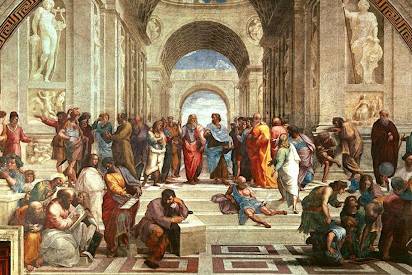I am a child of crisis. This identification has deep personal meaning in both my faith and my vocation. The circumstances of my birth made my parents unable to give me a loving, nourishing and safe home. For the first two years of my life, I lived in many homes but was never at home. Afterwards, living with a mother unable to be the mother she desired to be, we moved every year, sometimes twice, on the edge of poverty. Uprooted, vulnerable, at risk and unprotected from the violence of the world, I know what it feels like to be invisible at home, community and school. I felt rejected and abandoned, without a loving family. I felt like Joseph (Genesis Bible story) also a child of crisis.
One of my fondest childhood memories, however, is listening to my grandmother tell me stories while I sat in a big, comfortable rocking chair in her bedroom. I felt a peace and joy as if God was wrapping his arms around me. My grandmother was a person of wondrous and joyous faith, a poet and story-teller who grew up in Lebanon (then Syria); her grandfather (founder of the American University at Beirut) and father were American Presbyterian missionaries for almost a century in Lebanon. One of my most vivid memories is the story of Joseph that she made come to life in my imagination. The cruelty and injustice he experienced and his triumph over them touched me deeply and gave me joy, hope and love. I wonder now if she knew the special way this story made me feel and how it would continue to resonate my entire life.
Although a child of crisis, I had as far back as I can remember a spiritual yearning for some greater truth, some greater possibility. I refused to be defined by my circumstances. I could not understand this spiritual sensibility except that it gave me great perseverance. I now know that God was developing within me the gift of empathy, by placing me at the edges of society. And God gave me the beautiful gift of a loving grandmother so that I could, like Joseph, know that God’s abundant love is triumphant over the violence of the world. I now know that my suffering as a child, even the trauma of abuse, God uses for good. As Joseph said, “You intended to harm me, but God intended it for good to accomplish what is now being done, the saving of many lives.” Genesis 50: 20
My faith inspired my vocation, public education policy and advocacy, where I seek to serve the most vulnerable children, those at the margins. Amazingly, I discovered during my career a child psychiatrist and educator at Harvard, Robert Coles, who wrote about “children of crisis.” He discovered that children who had experienced trauma—whether of the hate of racism during desegregation battles in the South in the 1960s, ethnic cleansing in Serbia, or tribal atrocities in Africa—often had a surprising inner spiritual life, a moral imagination, a resiliency and abiding curiosity about the world. They had a deep empathy, kindness and hope in how they responded to this violence, and in how they lived in the world afterwards. Instead of victims, they are “leaders in hope.” Coles encouraged educators and communities to respond to these children in kind, to listen and learn from their extraordinary voice and witness. As a Christian, I know the source of their great hope. I am so grateful that God gave me the experience of being a child of crisis, in my little way, so that I can know and listen to their voice. I am grateful for my evolving calling to ever grow in my faith, and grow in my leadership and service to encourage and strengthen children of crisis, and to educate them as fully as they deserve, so that they too can educate us.
By the grace of God, I was given insight into the mystery and miracle of redemptive suffering through Christ. Like Christ on the cross, our suffering is transformed into the ever deepening renewal of hope, faith and love. I have found that suffering is so painful because of, not in spite of, our relationship with God; otherwise our losses, our disappointments, our pain is meaningless for it merely embodies the indifference of a chaotic and seemingly pitiless universe devoid of God. To the contrary, our personal suffering is at times so painful because we cannot understand how a loving God would permit it. This is not the purpose he has in creating the world, in creating all those we love, in creating us. In this way, in our prayerful turn toward God, in heart-felt dialogue, we find God transforms our human pain into divine suffering. We are invited by God to be angry with God over our suffering and loss. To grieve deeply, to feel utter anguish and loneliness.
And yet as we grieve we come to realize the very fact of the depth of our suffering mysteriously, miraculously affirms that God is very real in our lives and in the world. We feel his comforting and redeeming presence. We know again that his goodness, all of his godly goods of love, joy, peace, beauty, truth and justice are eternal, ever present in the here and now, and will triumph fully in the end. He not only weeps with us in our suffering but then calls us to use it for good, to join Christ on the Cross in the human solidarity known through shared suffering. Like Joseph, we are all children of crisis called and sent by God to respond to the violence and divisions and suffering in the world with the healing balm of Christ, with the joy of the Gospel. This is the miracle of faith that calls me to serve as a Stephen Minister, to walk with those in crisis. I rejoice at the opportunity to let the Holy Spirit fill us–care giver and care receiver alike–with the abundant love and eternal life of God.
Redemptive suffering in Christ reminds us that the whole world suffers not in his absence but in his presence, not in spite of but because we are beloved children of God in the midst of a broken world. We are invited again into the “new creation” of the body of Christ, to find our true holy selves as one of many members, each of us essential and extraordinary and original, because each of us is blessed and given a divine calling to triumph over the world’s suffering and turn it into resurrection, to have empathy for others and to respond in love.
I am grateful for the call to mission God gave my ancestors. They loved the people and land of Syria, which contained Lebanon then, and brought forth multiple families there. And so, by blood and faith, I feel the suffering of the little children among the refugees from Syria. I yearn like all of us, as we are woven together in the body of Christ, to reach out to them, to comfort them, and to bring them the peace and comfort of God. It is overwhelming. I do not know what to do but to pray and trust even more deeply in the story of Joseph that what is intended for evil God will use for good. I pray that God will continue to lead me in my faith and my calling, to serve the children of crisis—both distant and in our very midst.



